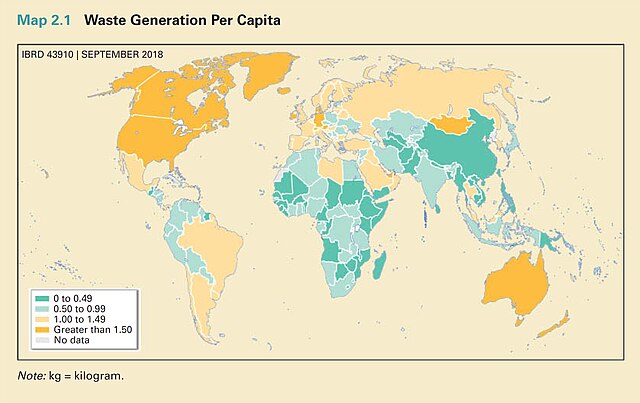Sustainable development is an approach to growth and human development that aims to meet the needs of the present without compromising the ability of future generations to meet their own needs. The aim is to have a society where living conditions and resources meet human needs without undermining planetary integrity. Sustainable development aims to balance the needs of the economy, environment, and social well-being. The Brundtland Report in 1987 helped to make the concept of sustainable development better known.
Deforestation of the Amazon rainforest. Deforestation and increased road-building in the Amazon rainforest are a concern because of increased human encroachment upon wilderness areas, increased resource extraction and further threats to biodiversity.
Before flue-gas desulfurization was installed, the air-polluting emissions from this power plant in New Mexico contained excessive amounts of sulfur dioxide.
Waste generation, measured in kilograms per person per day
Planetary boundaries are a framework to describe limits to the impacts of human activities on the Earth system. Beyond these limits, the environment may not be able to self-regulate anymore. This would mean the Earth system would leave the period of stability of the Holocene, in which human society developed. The framework is based on scientific evidence that human actions, especially those of industrialized societies since the Industrial Revolution, have become the main driver of global environmental change. According to the framework, "transgressing one or more planetary boundaries may be deleterious or even catastrophic due to the risk of crossing thresholds that will trigger non-linear, abrupt environmental change within continental-scale to planetary-scale systems."
Doughnut (economic model)




